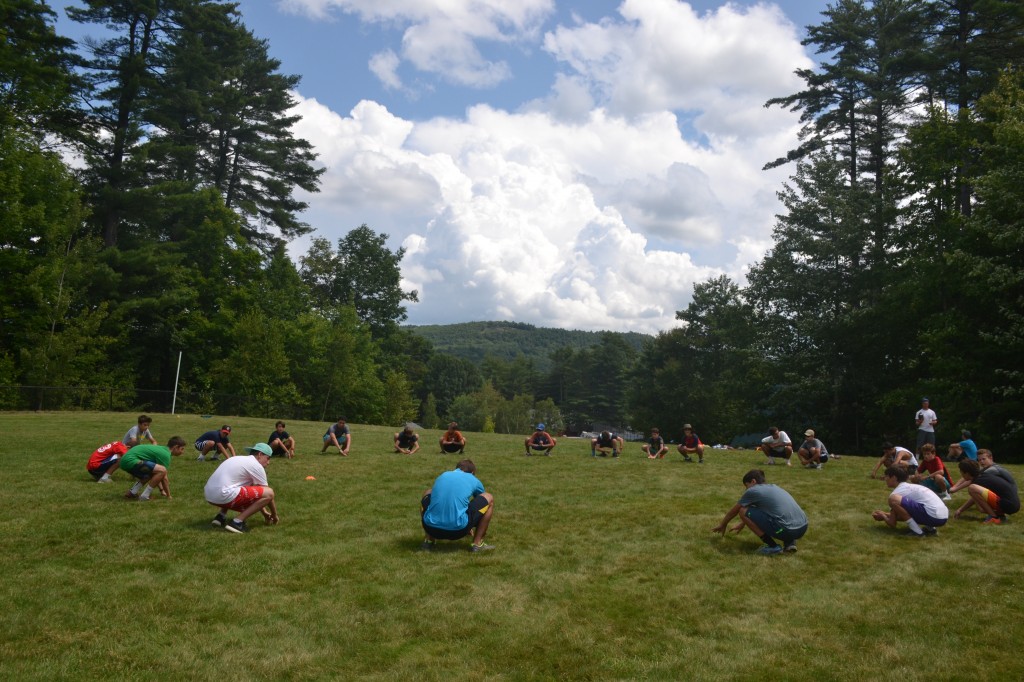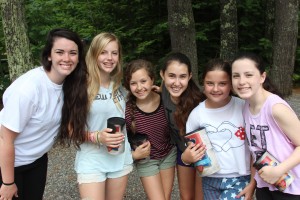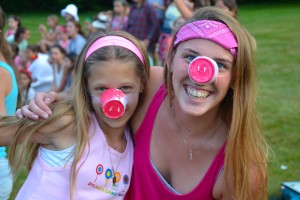 Campers donning big, silly hats and oversized costumes can be found dancing and singing their hearts out on stage at Laurel South. You can see campers giggling in groups, and others transforming into super heroes and villains as their imaginations run wild. Of course, staff members get in on the action too, letting their inner-child emerge by singing, dancing and playing along with the campers. Campers and counselors feel safe at camp; safe to be silly, safe to use their imaginations and safe to just “let go.” They learn right away that camp is a judgment-free space, where they can be themselves and act like a kid. In a world where kids are exposed to adult themes in their TV shows, music and social media, it can be easy for them to lose the silly, magical, goofy part of themselves, in fear of looking “uncool” to their peers. Not at camp, though.
Campers donning big, silly hats and oversized costumes can be found dancing and singing their hearts out on stage at Laurel South. You can see campers giggling in groups, and others transforming into super heroes and villains as their imaginations run wild. Of course, staff members get in on the action too, letting their inner-child emerge by singing, dancing and playing along with the campers. Campers and counselors feel safe at camp; safe to be silly, safe to use their imaginations and safe to just “let go.” They learn right away that camp is a judgment-free space, where they can be themselves and act like a kid. In a world where kids are exposed to adult themes in their TV shows, music and social media, it can be easy for them to lose the silly, magical, goofy part of themselves, in fear of looking “uncool” to their peers. Not at camp, though.
Laurel South encourages campers to be silly in a variety of ways. Programmed “free time” allows campers to explore and socialize with their friends in a way that is supervised, but not highly structured. This gives campers time to use their imaginations. Some campers like to put on skits or host a cabin comedy club. They are encouraged to do and say the silly, kid-like things that come so naturally to them.
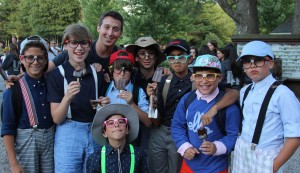 During structured activities, kids are supported when they speak their minds, share their opinions and engage in discussions. They are taught to listen to and respect each other, which gives children the green light to do and say silly things without fear of embarrassment or ridicule. By exploring this side, kids develop a sense of humor. A good sense of humor helps children be spontaneous, to see different sides of a situation, enjoy the playful parts of life and not take themselves too seriously. These character traits are extremely helpful for kids who have a lot of stress and responsibility in school, sports and life back in the real world. A good sense of humor also increases their self-esteem, which is always a bonus!
During structured activities, kids are supported when they speak their minds, share their opinions and engage in discussions. They are taught to listen to and respect each other, which gives children the green light to do and say silly things without fear of embarrassment or ridicule. By exploring this side, kids develop a sense of humor. A good sense of humor helps children be spontaneous, to see different sides of a situation, enjoy the playful parts of life and not take themselves too seriously. These character traits are extremely helpful for kids who have a lot of stress and responsibility in school, sports and life back in the real world. A good sense of humor also increases their self-esteem, which is always a bonus!
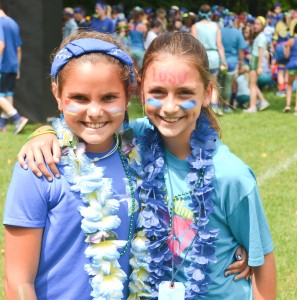 Counselors are counselors because they like kids, and they enjoy seeing the world through the eyes of children. They are fun, relatable and great at being silly. They know they are role models for the campers, so they make it a point to set a good example. When counselors can sing, dance and act silly, campers catch on quickly and begin to feel safe to do the same. They are also a good example of knowing a “time and place” to be silly. They model how to calm themselves down when it is time to be serious, and teach campers how to differentiate between a place where it’s okay to be silly (free time) and a time when being calm and focused is more productive (quiet time in the cabins).
Counselors are counselors because they like kids, and they enjoy seeing the world through the eyes of children. They are fun, relatable and great at being silly. They know they are role models for the campers, so they make it a point to set a good example. When counselors can sing, dance and act silly, campers catch on quickly and begin to feel safe to do the same. They are also a good example of knowing a “time and place” to be silly. They model how to calm themselves down when it is time to be serious, and teach campers how to differentiate between a place where it’s okay to be silly (free time) and a time when being calm and focused is more productive (quiet time in the cabins).
Children are expected to be focused and serious for a large portion of their day in the “real world,” so it is important to foster their childlike wonder and silliness whenever possible. At Laurel South, kids can feel safe to show off their silly side.


